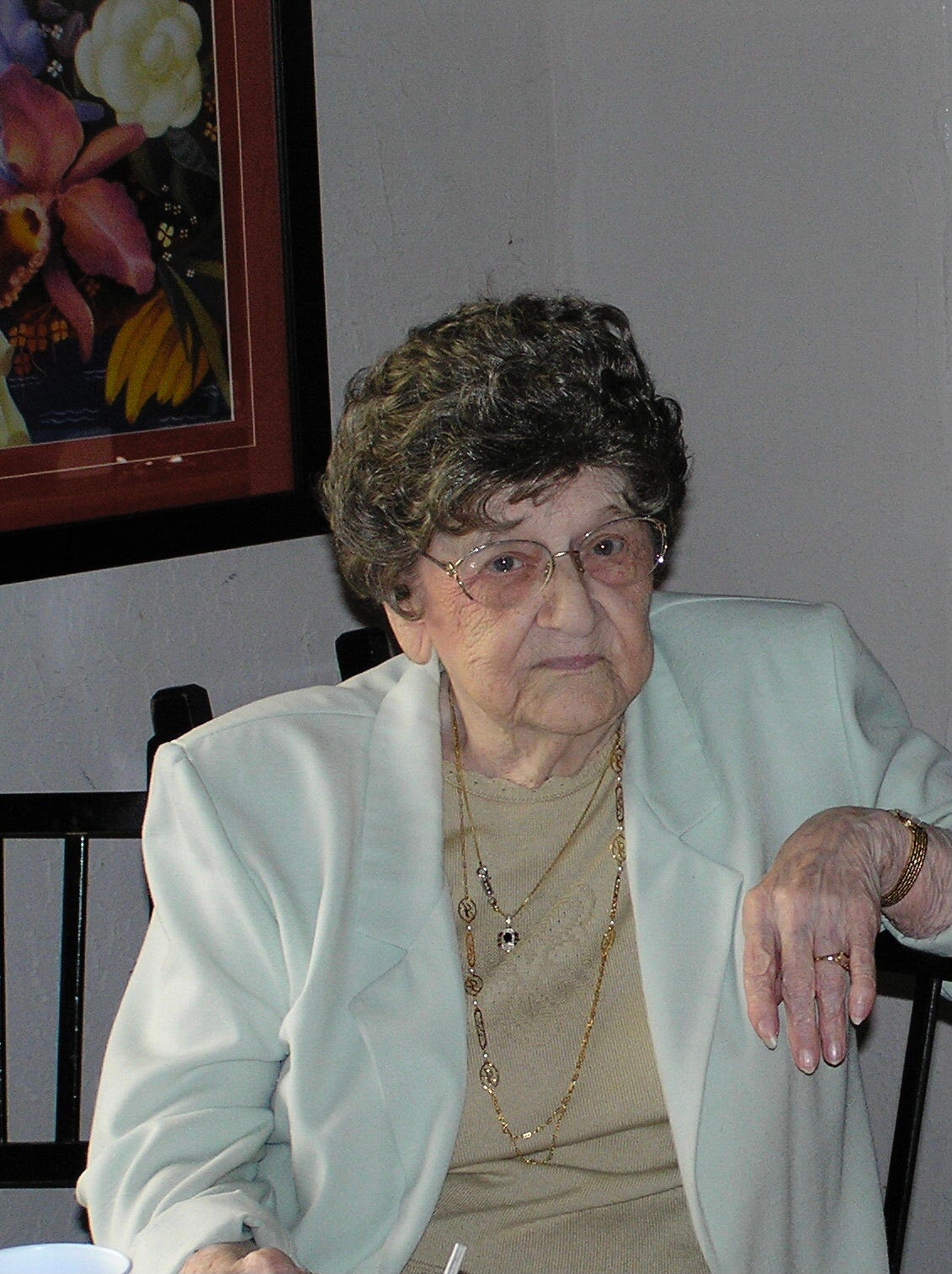My Grandmother was a force of will. She had a strength that no one questioned. She lived to the ripe old age of 100, then simply said “I’m done now,” and left.
She couldn’t have had an easy life. She was a child during the Great Depression in Southeast Kansas. Her father left the family high and dry around 1930. She would have been around ten, the second oldest of six kids. He was a scoundrel, a man of no good who owed money all over town. They never saw him again. Although there were promises of riches and sending for them, contact eventually was lost altogether. Her mother took in sewing, cooking, laundry and at some point moved in with a farm family. She divvied out the kids to relatives, some rather far away. Grandma went to live with a cousin in Oklahoma, a good sixty miles from home. Too far to travel very often in that day. I don’t know how long she was there or what that life was like. I never asked about those times. She wouldn’t have told me anyway. She was so tight lipped about her early family life. But I should have asked; maybe in a moment of weakness she would have told me something.
She and my Grandpa married in 1939. Soon afterwards they moved to California, a part of the great migration of Midwesterners. They were looking for a better life, I’m sure. Grandpa worked at Lockheed during the war, building P-38’s. They had five kids, the last two a set of twins, one of whom had Down’s Syndrome. She was nearly forty when they were born. She suffered from post-partum depression after their birth, and as my mom remembered it, stayed in bed for the better part of three years. There wasn’t much recognition or treatment of the ailment at the time. Women were just thought to be crazy, lazy, or simply bad mothers. My mom and her older sister, took care of their younger brother and the babies, cooked the meals, cleaned the house, and generally kept the whole thing running.
In the late sixties they moved back to Kansas. Grandpa wanted to start a car repair business of his own. He had been working for General Motors for several years by this time. He had a love of cars that was palpable. It was all he wanted to do. She went to work in a sewing factory to make ends meet while he got the business up and running. They bought a house on the edge of town with enough land for him to build a three stall garage. She never learned to drive, so he would take her to work every morning, and pick her up at four. It marked the start and end of both their work days. She stayed at the job until she could retire, long after the business was successful and she could have quit. I think it gave her a sense of self worth.
After they retired, they settled into a quiet life. Grandpa still had his garage, where he went everyday. He tinkered with his own cars, and still worked on cars of some of his older customers. Cars had changed, with electronics and computer chips that he didn’t have equipment to repair, but he still loved to tinker with the older models. She cooked and baked and did who knows what. After grandpa died she moved into a smaller house and property that was easier to manage, and eventually moved in with her youngest daughter. Her body was failing, but her mind never did. She probably lost a foot of height in those last few years, but she didn’t let that stop her. She was still larger than life to me.
Her death came during the pandemic, although not of Covid. She had fallen and broken her hip. She came through the surgery well, and went to a care center to rehabilitate, where she stayed for four months. One day she decided she was done. That was that. Even though she didn’t officially die of Covid, I think her death was one of the byproducts of the virus. No one could visit. She had been very deaf for the last few years, and refused to wear hearing aids. This made any contact with her impossible. We were locked out of her life. She was locked in isolation. She grew weary of it. It was a life no longer worth the effort. Her final force of will.



So much like my Grandma Jensen. She had three kids during the depression. She never said much about things. But by the 1940 census she was head of household. She got a job. She trained and moved up in positions where and when she could. She was pretty tight lipped all my life. But she had a face and strength that I still admire today. Thanks for the memory Karen.
Quite the lady and what a legacy she left. I will always remember the Cummings candy story.